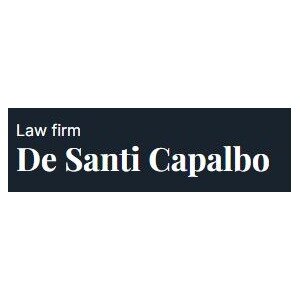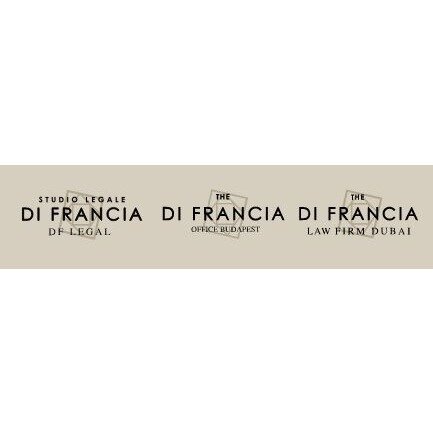Best Water Law Lawyers in Bologna
Share your needs with us, get contacted by law firms.
Free. Takes 2 min.
List of the best lawyers in Bologna, Italy
About Water Law in Bologna, Italy
Water Law in Bologna governs the use, management, protection, and distribution of water resources within the municipality and the surrounding Emilia-Romagna region. Italian Water Law operates within a framework established by national and EU directives, and is administered in Bologna through various local and regional agencies. The primary aims are to ensure sustainable water use, protect water quality, support public health, safeguard the environment, and regulate water infrastructure such as aqueducts, wells, and irrigation systems. Legal aspects can cover public and private water rights, pollution controls, permits for water extraction, issues of water allocation among users, and disputes over contamination or flooding.
Why You May Need a Lawyer
Water Law can be complex due to overlapping jurisdiction between national, regional, and local authorities, as well as the technical nature of water management. Common situations where legal help is often required include:
- Seeking permits for drilling wells or extracting groundwater
- Dealing with disputes over water rights or boundaries
- Resolving conflicts related to irrigation and agricultural water use
- Facing penalties for pollution or non-compliance with environmental regulations
- Challenging public works projects affecting water access or flow on private land
- Negotiating compensation for water damage or contamination
- Navigating regulations involving flood protection and liability
Local Laws Overview
Water Law in Bologna is shaped by a combination of national legislation, European Union directives, and regional regulations. Key aspects include:
- Water Management Plans (Piani di Gestione delle Acque) - These set the strategic framework for water use, protection, and conservation in the territory.
- Permitting System - Activities such as groundwater extraction, construction near rivers, and wastewater discharge require permits from local agencies or the Emilia-Romagna Region.
- Public-Private Water Rights - Most water resources in Italy, including rivers and aquifers, are considered public property, but private rights can exist through concession or historical use.
- Flood and Pollution Control - Strict regulations are in place regarding the prevention of water pollution, management of hazardous materials, and construction in flood-prone areas.
- Dispute Resolution - Disputes involving water access, contamination, or property damage often go before regional authorities or administrative courts.
- Sanctions and Enforcement - Violations of water regulations can lead to administrative fines, orders to remedy damage, or, in severe cases, criminal penalties.
Frequently Asked Questions
What is considered a water resource under local law?
In Bologna, water resources include surface water (rivers, streams, lakes), groundwater (aquifers), and even rainwater. All these are generally considered public assets regulated by government agencies.
Do I need a permit to drill a well on my property?
Yes, extracting groundwater usually requires a permit from the Emilia-Romagna Region or local authorities. Unauthorized drilling may result in fines or legal action.
Who is responsible for maintaining irrigation canals and ditches?
Maintenance responsibilities may fall on local landowners, farming consortia, or public authorities depending on the type and location of the watercourse. The Consorzio della Bonifica Renana plays a key role in this area.
What regulations apply to farmers using water for irrigation?
Farmers must comply with local and regional water allocation rules, use water-saving technologies when required, and obtain permits for large withdrawals to ensure sustainable use.
What are the penalties for polluting a watercourse?
Penalties range from administrative fines to criminal charges, depending on the severity and intentionality of the pollution. Offenders can also be ordered to clean up the contamination.
Can neighbors stop me from using a stream on my land?
Since most watercourses are public, use is subject to regulatory controls. However, you may have rights to reasonable use for domestic or agricultural purposes, but excessive use or pollution can be challenged in court.
How are flood risks managed legally in Bologna?
Flood zones are regulated through planning restrictions, and construction is often limited or subject to special requirements in flood-prone areas. Property owners and municipalities share responsibilities for implementing flood defenses.
What is the process for reporting illegal water use or pollution?
You can file a report with ARPAE Emilia-Romagna, local municipalities, or environmental police, who will investigate and take enforcement action if necessary.
How can I challenge a denial of a water permit?
You have the right to appeal administrative decisions, first through internal agency procedures and, if necessary, before the regional administrative tribunal (TAR).
Are there special rules for businesses and industrial water use?
Yes, businesses face additional regulations concerning water withdrawal, treatment of wastewater, and reporting obligations to prevent environmental harm and ensure fair allocation of resources.
Additional Resources
If you need further information or assistance, the following organizations can be helpful:
- ARPAE Emilia-Romagna - Regional agency for environmental protection and energy, overseeing water quality and permits
- Consorzio della Bonifica Renana - Manages land reclamation, irrigation consortia, and flood prevention in Bologna area
- Comune di Bologna (Urban Planning and Environment Division) - Municipal office for local permits and regulations
- Ordine degli Avvocati di Bologna - Bologna Bar Association, which can refer you to lawyers specialized in Water Law
- Emilia-Romagna Region Environmental Department - Regional authority for water management and policy
Next Steps
If you believe you need legal advice or assistance related to Water Law in Bologna, follow these steps:
- Gather relevant documents, such as property deeds, permits, or correspondence from local authorities
- Write down a detailed description of your situation and any specific questions you have
- Identify the agency or authority involved, if applicable
- Contact a lawyer with experience in Water Law, preferably registered with the Ordine degli Avvocati di Bologna
- Request an initial consultation to assess your case and discuss possible courses of action
- If appropriate, work with your lawyer to file applications, appeals, or legal challenges as needed
Lawzana helps you find the best lawyers and law firms in Bologna through a curated and pre-screened list of qualified legal professionals. Our platform offers rankings and detailed profiles of attorneys and law firms, allowing you to compare based on practice areas, including Water Law, experience, and client feedback.
Each profile includes a description of the firm's areas of practice, client reviews, team members and partners, year of establishment, spoken languages, office locations, contact information, social media presence, and any published articles or resources. Most firms on our platform speak English and are experienced in both local and international legal matters.
Get a quote from top-rated law firms in Bologna, Italy — quickly, securely, and without unnecessary hassle.
Disclaimer:
The information provided on this page is for general informational purposes only and does not constitute legal advice. While we strive to ensure the accuracy and relevance of the content, legal information may change over time, and interpretations of the law can vary. You should always consult with a qualified legal professional for advice specific to your situation.
We disclaim all liability for actions taken or not taken based on the content of this page. If you believe any information is incorrect or outdated, please contact us, and we will review and update it where appropriate.














